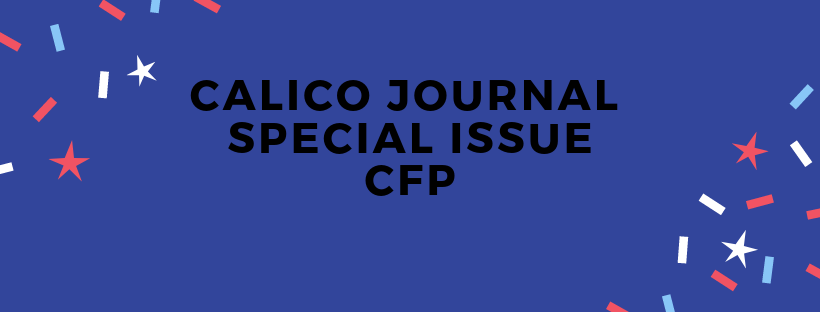
Special Issue Title: Social media pathways: Using social media to help language learners access target-language communities
Co-editors: Ellen Yeh (Columbia College Chicago) and Nicholas Swinehart (University of Chicago)
This CALICO Journal special issue explores and investigates CALL practices through the concept of “social media pathways”: using social media to help language learners access target-language communities, both virtual and physical. Social media tools have the potential to help language learners retrieve and critically assess crowd-sourced information from the local community of a target culture (Yeh & Mitric, 2021), enhance intercultural communicative competence (Lomicka & Ducate, 2021), foster social media literacy (Vanwynsberghe et al., 2015; Yeh & Swinehart, 2020), form language learner identities (Thorne et al., 2015), as well as develop sociocultural and pragmatic processes of language socialization (Sykes, 2019; Thorne et al., 2009). Social media can therefore serve as a “pathway” for connecting language learners to target-language communities. This can mean helping learners acquire the context-specific pragmatics and social media literacy necessary for successful interaction with target-language speakers in online communities (Sykes, 2018), or helping students learn about specific areas, cultures, and practices to prepare them for face-to-face interaction (Godwin-Jones, 2016).
This special issue uses a broad definition of social media to refer to any application or technology through which users participate in, create, and share media resources and practices with other users by means of digital networking” (Reinhardt, 2019), which can include blogs, social networking sites, virtual worlds (e.g., Second Life and virtual reality platforms), collaborative project platforms (e.g., Wikipedia), content communities (e.g., YouTube), affinity spaces (e.g., Reddit, Discord, and fan fiction), and online games (e.g., Minecraft, World of Warcraft). While this definition is broad, this special issue focuses on the integration of “authentic” social media environments–those not created or used exclusively for language learning purposes–into curricula and students’ digital practices through bridging activities (Thorne & Reinhardt, 2008), language learners-as-ethnographers (Roberts et al., 2001), or other approaches that attempt to scaffold learners’ understanding of and participation in complex linguistic environments. Through the use of “real-life language, the active engagement in authentic material, the participation in communities in the target language, and boundary crossing” (Miller et al., 2019, p. 551), the social media pathway connects language learners with the target language communities in extensive ways, while always working towards increased knowledge of and/or participation within those communities.
Themes of relevance to social media and target-language communities include, but are not limited to:
- Innovative approaches to using social media to increase language learners’ access to and participation within target language communities.
- Effective ways of developing social media literacy for participatory culture in both virtual and face-to-face target language communities.
- Bridging students’ in-class and out-of-class digital literacy practices to increase language learners’ social and cultural interaction with target language speakers and communities in authentic ways.
- Developing pragmatic awareness in diverse social media contexts.
- Integrating social media literacy learner training and teacher training into pre-service and in-service teacher preparation programs.
This special issue invites full-length (no more than 7,000 words, all-inclusive) articles, with preference given to empirical studies. Authors are strongly encouraged to contextualize their contribution within appropriate theoretical and developmental frameworks.
Submission deadline for abstracts is October 3, 2022.
- October 3, 2022: Submit an initial proposal of no more than 750 words to the guest editors.
- Abstracts should be submitted via email (Word or PDF format only) to both co-editors: Ellen Yeh (eyeh@colum.edu) and Nicholas Swinehart (nswinehart@uchicago.edu).
- If authors have any questions or queries, please contact the guest editors at the email addresses above.
- October 17, 2022: Notifications for inviting full manuscripts
- February 1, 2023: Full-length manuscripts due; must comply with CALICO’s formatting guidelines
- August 15, 2023: Full-length final draft of manuscripts due
- February, 2024: Special Issue publication
Special Issue to be published in February of 2024. Please note that abstract acceptance does not guarantee publication of the submitted manuscript. All manuscripts will be subject to a double-blind peer review process. Please send questions about the volume to co-editors Ellen Yeh (eyeh@colum.edu) and Nicholas Swinehart (nswinehart@uchicago.edu).
References
Godwin-Jones, R. (2016). Integrating technology into study abroad. Language Learning & Technology, 20(1), 1-20. http://dx.doi.org/10125/44439
Lomicka, L., & Ducate, L. (2021). Using technology, reflection, and noticing to promote intercultural learning during short-term study abroad. Computer Assisted Language Learning, 34(1/2), 35–65. https://doi.org/10.1080/09588221.2019.1640746
Miller, A. M., Morgan, W. J., & Koronkiewicz, B. (2019). Like or Tweet: Analysis of the use of Facebook and Twitter in the language classroom. TechTrends: Linking Research & Practice to Improve Learning, 63(5), 550–558. https://doi.org/10.1007/s11528-018-0341-2
Reinhardt, J. (2019). Social media in second and foreign language teaching and learning: Blogs, wikis, and social networking. Language Teaching, 52(1), 1–39. https://doi.org/10.1017/S0261444818000356
Roberts, C., Byram., M, Barro, A., Jordan, S., & Street, B. (2001). Language Learners as Ethnographers. Multilingual Matters.
Sykes, J. M. (2018). Interlanguage pragmatics, curricular innovation, and digital technologies. CALICO Journal, 35(2), 120–141. https://doi.org/10.1558/cj.36175
Sykes, J. M. (2019). Emergent digital discourses: What can we learn from hashtags and digital games to expand learners’ second language repertoire? Annual Review of Applied Linguistics, 39, 128–145. https://doi.org/10.1017/S0267190519000138
Thorne, S. L., Black, R., & Sykes, J. (2009). Second language use, socialization, and learning in Internet interest communities and online games. The Modern Language Journal, 93, 802–821. https://doi.org/10.1111/j.1540-4781.2009.00974.x
Thorne, S. L., & Reinhardt, J. (2008). “Bridging activities:” New media literacies, and advanced foreign language proficiency. CALICO Journal, 25(3), 558–572. https://doi.org/10.1558/cj.v25i3.558-572
Thorne, S. L., Sauro, S., & Smith, B. (2015). Technologies, identities, and expressive activity. Annual Review of Applied Linguistics, 35, 215–233. https://doi.org/10.1017/S0267190514000257
Vanwynsberghe, H., Boudry, E., & Verdegem, P. (2015). De impact van ouderschapsstijlen op de ontwikkeling van sociale mediageletterdheid bij adolescenten [The impact of parenting styles on the development of social media literacy among adolescents]. Tijdschrift voor Communicatiewetenschap, 1(43), 84–100.
Yeh, E., & Mitric, S. (2021). Social media and learners-as-ethnographers approach: increasing target-language participation through community engagement. Computer Assisted Language Learning. https://doi.org/10.1080/09588221.2021.2005630
Yeh, E., & Swinehart, N. (2020). Social media literacy in second language environments: Navigating anonymous user-generated content. Computer Assisted Language Learning. https://doi.org/10.1080/09588221.2020.1830805
